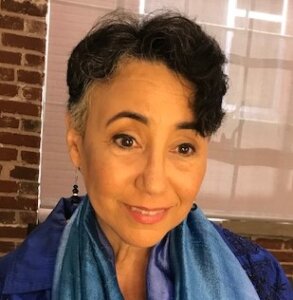We asked 8 Black Jews to weigh in on the Kanye West mess
Leaders, former fans ask why similar outrage wasn’t expressed over rapper’s anti-Black antics
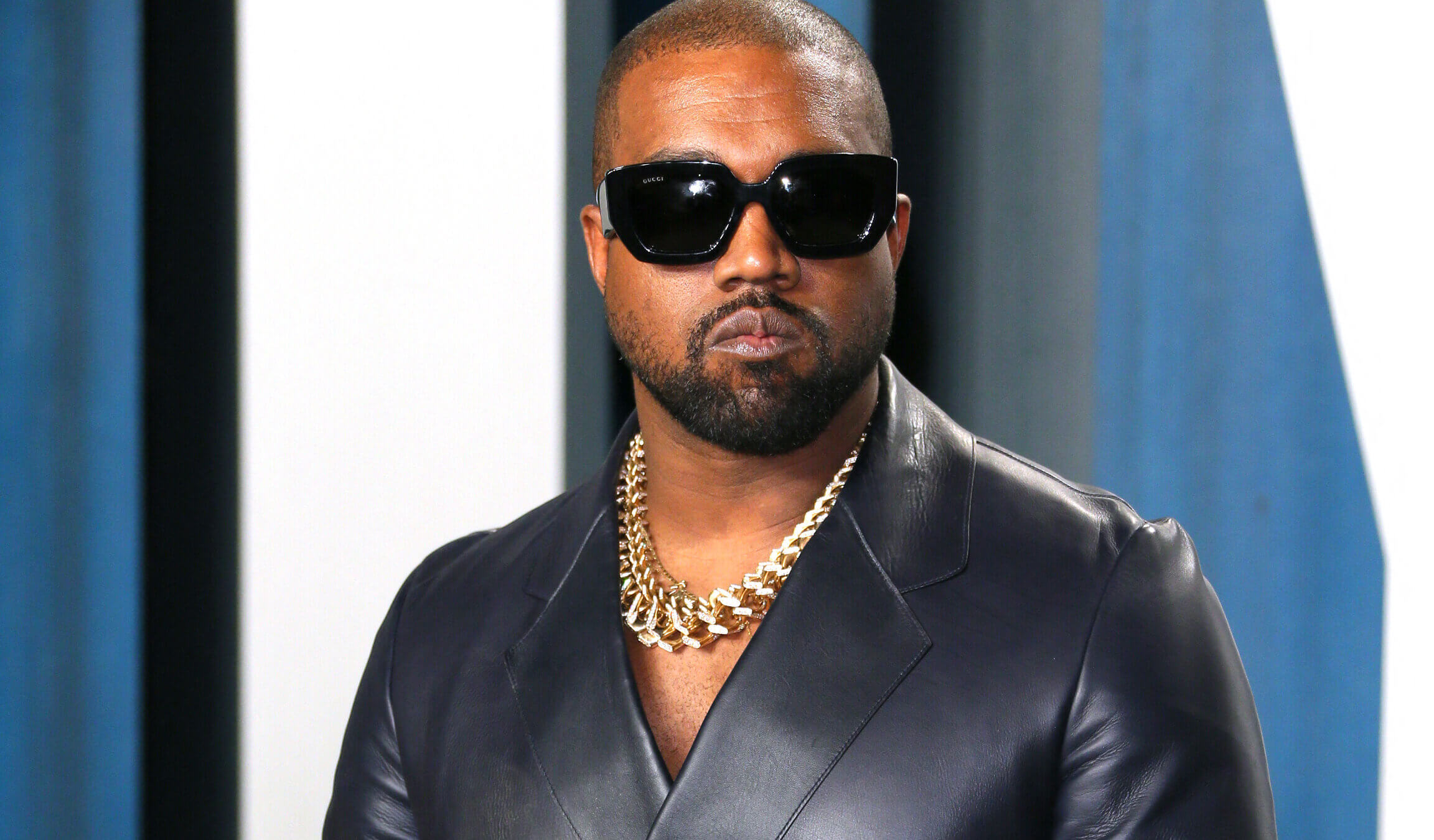
Kanye West in 2020 Courtesy of Getty Images
Oy Ye.
By now, the world has heard from practically everyone with an opinion on Kanye West’s antisemitic posts and rants — except the group perhaps most qualified to comment on the subject: Black Jews. Among Jewish African American leaders and activists are those who have been fans of the rapper for years, and others who wrote him off long ago when he began embracing white supremacist, anti-Black ideologies.
To learn how the controversy is playing to Black Jewish people, we spoke to those who live at the intersection of these issues on an everyday basis. None claim to speak for the entire Black Jewish community, which is as diverse as the wider Jewish and Black populations, but none held back their opinion, either. Their responses have been edited for length and clarity.
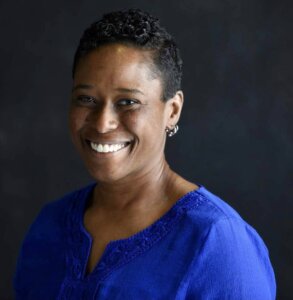 Rabbi Sandra Lawson is an activist, public speaker and musician, the inaugural director of racial diversity, equity and inclusion at Reconstructing Judaism and the first openly gay, female and Black rabbi.
Rabbi Sandra Lawson is an activist, public speaker and musician, the inaugural director of racial diversity, equity and inclusion at Reconstructing Judaism and the first openly gay, female and Black rabbi.
Kanye is saying some of the worst antisemitic things that are even hard for people who have right-leaning politics to swallow.
None of this is really surprising if you go back through Kanye’s problematic comments, or his relationship with Donald Trump and Candace Owens. It looks to me like he’s having a breakdown. I don’t think it’s just mental illness — I think it’s a combination of all kinds of things. As a man who was worth over a billion dollars, I also think he may have believed that he was untouchable, believed that Adidas and others wouldn’t drop him for his antisemitic comments. I don’t know why it took them so long, but it’s better late than never.
I’ve intentionally stayed out of all the conversations I’ve been tagged in. You don’t need me, as a rabbi, to tell you this is horrible.
As a Black Jewish person and leader, I’m really tired of white people demanding a response from Black Jews every time a Black celebrity says something grossly antisemitic. When colleagues have told me that they’ve been working on racism and asked why they don’t see Black and brown people talking about antisemitism, I say: “You need to look at your network. Because I see Black and brown people calling it out.”
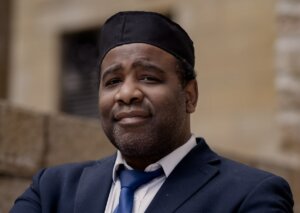
Rav Mordechai Yosef ben Avraham is the author of “The Mind of the Black Jew.” Ben Avraham was born in Los Angeles, where he worked in the television and music industry, and is an associate of Orthodox rapper Nissim Black. He is now a Talmudic scholar at Ohr Somayach in Jerusalem.
I’ve been a Kanye fan for years, but his recent comments put Black Jews on the defensive.
I converted to Judaism and I very much identify with the African American part of myself. But while I empathize with Kanye on a certain level, I’m really upset with him for the things that he’s saying. These are really dangerous statements that are negative and can inspire even more people to act out negatively.
We should, collectively as a global community, condemn anybody who professes hate towards any group at any time.
Some people who are enemies of Israel, enemies of Jewish people, want to portray Judaism as being this white religion, trying to connect it to white supremacy. We need to help people understand that there are also Spanish Jews, African Jews, Asian Jews and Arab Jews. The Torah is everywhere, and there are all different types of people that express themselves under the idea of the Twelve Tribes. Some people have returned, some have intermixed, some married outside the Jewish community, some people were abducted in the slave trade. It’s a combination of stories all rooted in this connection to God.
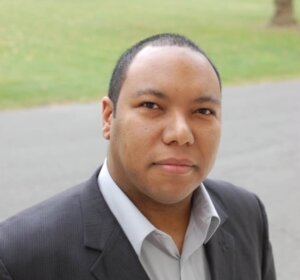 Jared Jackson is an activist, the founder and executive director of Jews in ALL Hues.
Jared Jackson is an activist, the founder and executive director of Jews in ALL Hues.
I’m really glad that there are consequences for Kanye, finally — that he’s losing his endorsements, etc. because of his antisemitic views and white supremacist rhetoric. It would also be great if other people received the negative consequences for the same bigotry.
It seems like white Jews saved up all of their angst and anger toward white antisemites and waited for a chance to unleash it at Black and brown figures — in particular someone descended from enslaved people in these lands — instead of at those white folks who have more power in this system. When a Black celebrity says remotely the same thing — see Nick Cannon — they’re either run through the wringer or educated or both.
When white Jews get into this fight-or-flight mode, there is the erasure of Jews of color, specifically Black Jews. And this response triggers the dehumanization of other communities in defense of antisemitism.
A lot of white Jewish organizations try to speak for us, speak for Black Jews in particular, at the same time they’re trying to erase us. You can’t do both — you can’t speak for me and erase me. You need permission to speak for me, and I haven’t given it. I have my own voice.
The same people going after Kanye weren’t showing up all the years that he’s been spouting dehumanizing, abhorrent tropes about Black people and communities. I see deserved consequences for Kanye, but I also see a Jewish response that uses part of white supremacy (anti-Blackness) to combat another part of white supremacy (antisemitism). White supremacy won’t kill itself.
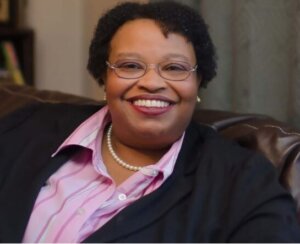 Kohenet Harriette E. Wimms is a licensed psychologist in Maryland. She was recently named a Jew of Color Engagement Fellow at The Associated Jewish Federation of Baltimore and is the founder and executive director of the Jews of Color Mispacha Project.
Kohenet Harriette E. Wimms is a licensed psychologist in Maryland. She was recently named a Jew of Color Engagement Fellow at The Associated Jewish Federation of Baltimore and is the founder and executive director of the Jews of Color Mispacha Project.
As a psychologist who is also a Black Jew, when I hear about Kanye West (which I often do from my teenager), I become acutely aware of his mental illness. As the Black feminist psychologist, scholar, and educator Janet E. Helms says, racism, antisemitism, sexism, etc., are salient mental illnesses.
I hear what Kanye says. His politics frighten me. I respond through the lens of, “this person is very ill.” Many people have seen him say and do extremist things. The fact that he can align with Trump really elucidates his lack of personal and social awareness. It’s just so incongruent that it has to be suspect. And while I am definitely not ableist, and not saying that people who struggle with mental illness are not valid, just the fact that he can align with Donald Trump shows me that he is very unwell.
The things we pay attention to are the things that grow, and I personally am not going to allow Kanye West to have space and a place in my spirit. And so, I pray for him and move on.
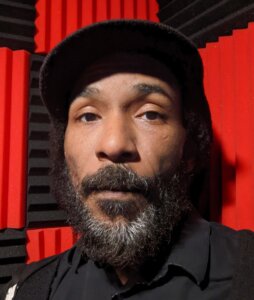 Yitz Jordan is an Orthodox hip-hop artist performing as Y-Love who rhymes in a mix of English, Hebrew, Yiddish, Arabic, Latin and Aramaic. He came out as gay in 2012.
Yitz Jordan is an Orthodox hip-hop artist performing as Y-Love who rhymes in a mix of English, Hebrew, Yiddish, Arabic, Latin and Aramaic. He came out as gay in 2012.
I’m never going to have a memory of the 2000s that doesn’t involve Kanye’s music. Kanye could have been a positive influence — his heart was in so many positive places. And then he went from trying to empower the Black community to “white lives matter.” He went from the idea of building sustainable cities and helping the ’hood to this agenda of “death con 3.”
Kanye and others have forgotten that Black Jews exist, and that anything you say about Jews applies to 3-5% of the Black community, minimum. Anytime you want to go “death con” on Jewish people, how many Black people are you willing to kill?
Coming from Chicago, which has historically had a lot of Black Jews, he should know about this intersection. You can’t be antisemitic without being anti-Black. It’s impossible.
It sucks that this is the catalyst, but this has brought a lot of unity out of the woodwork. When there’s antisemitism at this level, when Kanye is getting support from Trump immediately after saying things like this, when Nazi banners are flown across the 405 in Los Angeles, Jews are realizing that it’s not time for division.
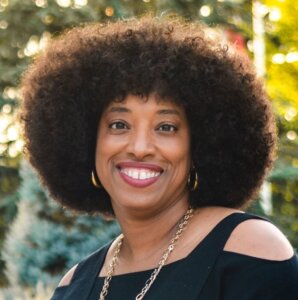 Yavilah McCoy is an educator, diversity expert and founder and CEO of Dimensions Educational Consulting.
Yavilah McCoy is an educator, diversity expert and founder and CEO of Dimensions Educational Consulting.
Kanye has been on the wrong side of justice for many years now. I don’t see the current moment as being much different. It is up to us — consumers, folks who are purveyors of the arts and other commodities that are part of our capitalist system — to make conscious choices about who we allow to be role models, who we allow to influence us.
Unfortunately, there are people who, because of their own hurts and harms, are not in a place of remorse about the harm that they have done. Kanye West has shown us over and over again what it looks like when he chooses to use his platform to do harm.
As Jews, we have a moral obligation to stand up against injustice in all forms. I didn’t hear a roar when Kanye aligned himself with the Trump administration, when he aligned himself with troublesome ideals, when he championed problematic ideologies. The Jewish community should be as outraged as it is now in all these cases.
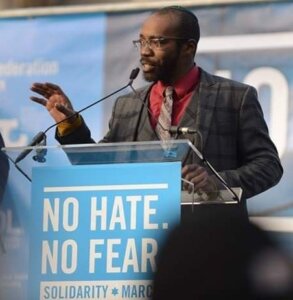
Rabbi Shais Rashon, known as MaNishtana, is an African American Orthodox Jewish author, writer, educator and public speaker.
If there had been a strong backlash in 2011, when Kanye started comparing himself to Hitler, or in 2018, to his statement that “slavery was a choice” for Black people, or to his years of misogynoir comments, we wouldn’t have gotten to this point. When he first started manifesting into the persona that he is now, after his mother died, there was a moment of important conversation about Black mental health. But after a certain point, you can’t blame your mental illness for being a jerk.
Looks like Ye is rly facing the backlash of his antisemitism. Which is good. But alla y'all shouldve dropped him when he made dangerous comments about black people. pic.twitter.com/CfsObgVhZf
— (((Ma Nishtana))) (@MaNishtana) October 25, 2022
I’m not sure if Kanye is dangerous per se, but he’s definitely a dangerous harbinger and unleashing less than savory forces just by dint of his influence. His antisemitic comments have consequences, which speaks back to intersectionality and the need for having non-transactional relationships where there wouldn’t be the perception of people caring less about Black people than about Jews. There wouldn’t be the perception of ‘they will come after you if you say a certain thing.’”
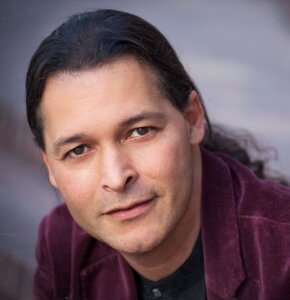
Eric Greene is a writer and civil rights activist.
Kanye’s comments were rank antisemitism. It’s not about critiquing a political position or fairly questioning the ethics of particular business practices by specific people. It’s about ugly ethnic stereotyping from one of the most prominent artists of our time. We need to take it seriously.
Prior to 2016, I was a huge Kanye fan. He can be a riveting live performer and is ingenious in the studio. As a fan, this poses a familiar dilemma: What does an art lover do given Wagner’s or Ezra Pound’s antisemitism? Harvey Weinstein made great movies and was a sexual predator. Woody Allen is beloved by many while others think he was a child molester. At what point does an artist’s beliefs or actions poison the ability to appreciate the art?
Kanye always exhibited a serious anti-intellectual bias and deep insecurities. Add narcissistic self-aggrandizement and it made perfect sense that he would embrace Trump. And when he did, I soured on him. Since then, he has gone out of his way to parrot right-wing talking points — often horribly racist ones — and it became intolerable. I have not seen him live or played his music since 2016.
The famous Rabbi Hillel quote asks, “If I am not for myself, who will be for me?” So, Jews are right to be outraged by Kanye’s antisemitism and call out its dangers. But another part of that quote also asks, “If I am only for myself, what am I?”
When Kanye accused Black people of “choosing” to stay in slavery, when he said that George Floyd was not killed by police brutality, when he wore a shirt saying “white lives matter,” I wish we had seen similar outrage.
Yes, it’s natural to feel more threatened when you are being attacked than when others are, but it can also be morally lazy. Kanye has been deeply offensive for years and those who are just now getting offended should probably do some soul searching.
I also wonder if Kanye’s corporate sponsors will come back to him if there is enough money to be made. Mel Gibson spent millions making a movie that gratuitously defamed Jews. It was a worldwide hit and people in Hollywood are now happy to do business with him. So what is the shelf life of moral principle?
Correction: The original version of this article misspelled the name of the Jews of Color Mishpacha Project and used an outdated affiliation for Kohenet Harriette E. Wimms, a licensed psychologist in Maryland.



